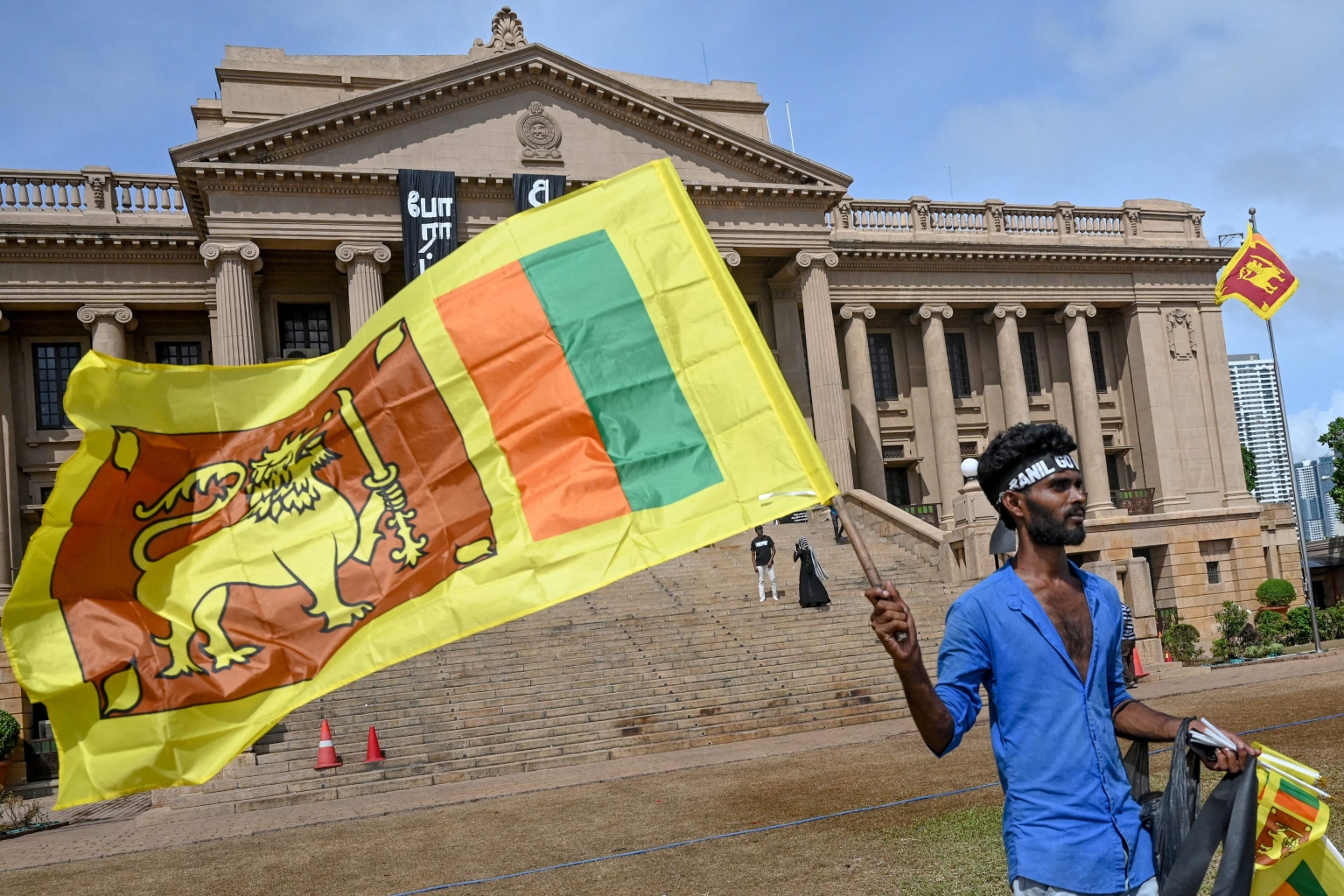Sri Lanka says IMF talks near end after declaring state of emergency
Sign up now: Get ST's newsletters delivered to your inbox

A man waves the Sri Lankan national flag during a protest near the Presidential secretariat in Colombo on July 17, 2022.
PHOTO: AFP
Follow topic:
COLOMBO (REUTERS, AFP) - Sri Lanka’s acting President Ranil Wickremesinghe said on Monday (July 18) that the country had almost concluded negotiations with the International Monetary Fund (IMF), a day after he declared a state of emergency in the island nation.
“The acting president further explained that negotiations with the International Monetary Fund (IMF) were nearing conclusion, and discussions for assistance with foreign countries were also progressing,” Mr Wickremesinghe’s office said in a statement.
The statement came after Mr Wickremesinghe gazetted orders late on Sunday for a state of emergency in the crisis-hit country, in an effort to head off unrest ahead of a vote in Parliament later this week to elect a new president.
Sri Lanka’s beleaguered leaders have issued imposed a state of emergency several times since April, when public protests took hold against the government’s handling of a deepening economic crisis and a persistent shortage of essentials.
“It is expedient, so to do, in the interest of public security, the protection of public order and the maintenance of supplies and services essential to the life of the community,” the notification stated.
Mr Wickremesinghe had announced a state of emergency last week, after president Gotabaya Rajapaksa fled the country to escape a popular uprising against his government.
It was unclear whether that order had been withdrawn or had lapsed, or whether Mr Wickremesinghe had reissued the order in his capacity as acting president, having been sworn in on July 15. A spokesman for Mr Wickremesinghe’s office did not respond to Reuters' request for comment.
The specific legal provisions of the latest emergency are yet to be announced by the government but previous emergency regulations have been used to deploy the military to arrest and detain people, search private property and dampen public protests.
The country’s commercial capital Colombo remained calm on Monday morning, with traffic and pedestrians out on the streets.
Mr Bhavani Fonseka, senior researcher at the Centre for Policy Alternatives, said declaring a state of emergency was becoming the government’s default response. “This has proven ineffective in the past,” he told Reuters.
Mr Rajapaksa’s resignation was accepted by Parliament last Friday. He flew to the Maldives and then to Singapore after hundreds of thousands of anti-government protesters came out onto the streets of Colombo a week ago and occupied his official residence and offices.
Sri Lanka’s Parliament met last Saturday to begin the process of electing a new president, and a shipment of fuel arrived to provide some relief to the crisis-hit nation.
Mr Wickremesinghe, an ally of Mr Rajapaksa, is one of the top contenders to take on the presidency full-time but protesters also want him gone, leading to the prospect of further unrest should he be elected.
Sri Lanka's protest movement reached its 100th day on Sunday, having forced one president from office and now turning its sights on his successor as the country's economic crisis continues.
Mr Rajapaksa’s mismanagement is blamed for Sri Lanka’s financial turmoil, which has forced its 22 million people to endure shortages of food, fuel and medicines since late last year.
The campaign to oust Mr Rajapaksa, organised mainly through posts on Facebook, Twitter and TikTok, drew people from across Sri Lanka’s often unbridgeable ethnic divides.
Under Sri Lanka's Constitution, Prime Minister Ranil Wickremesinghe was automatically installed as acting president following Mr Rajapaksa's resignation, and is now the leading candidate to succeed him permanently in a parliamentary vote this week.

